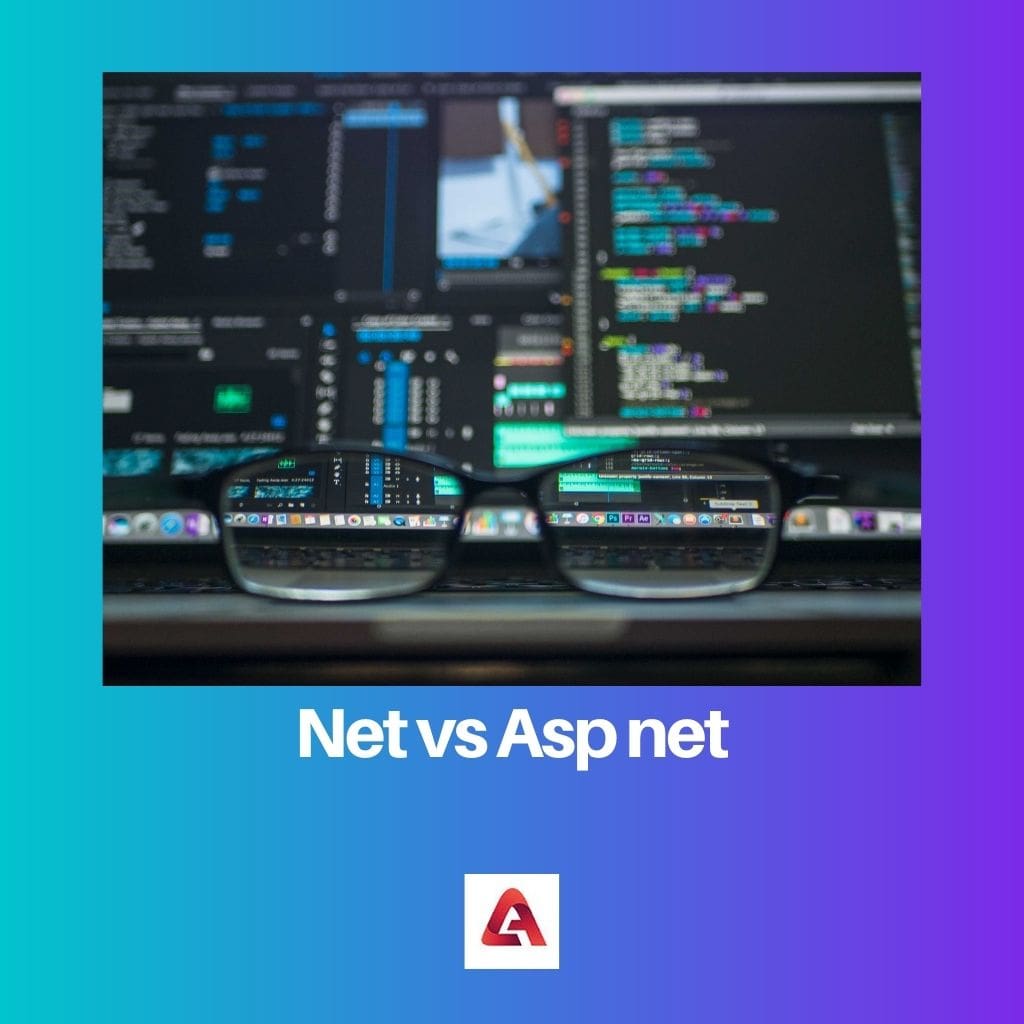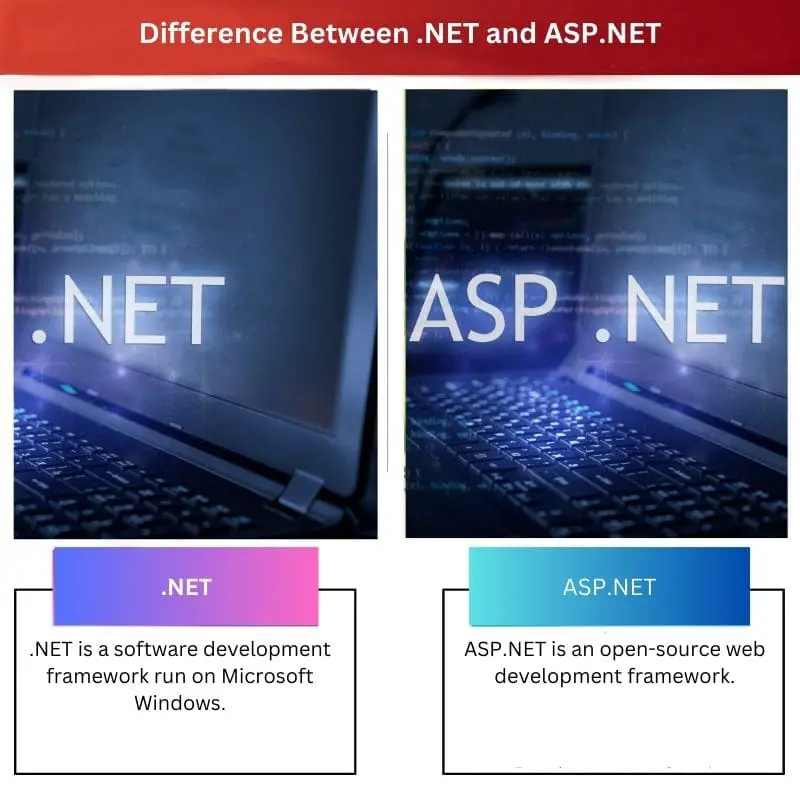Software development applications took the world by storm when customized software was developed for a specific purpose. With time, the application frameworks started making the task easier.
At the same time, web applications were also in existence. Dynamic Web pages were developed customarily too.
The codes used in both these applications are more or less similar; of course, there is a vast difference in the technicalities. When discussing application development, the prominent names that come into the picture are .NET and ASP.NET.
ASP.NET is a part of the .NET framework. However, there are many differences between them.
Key Takeaways
- .NET is a software development framework created by Microsoft, designed for building and running applications across various platforms and programming languages.
- ASP.NET is a subset of the .NET framework specifically designed for creating web applications and services using .NET technologies.
- Developers use .NET for various application types, while ASP.NET is tailored for web development within the .NET ecosystem.
.NET vs ASP.NET
.NET is a software framework developed by Microsoft company that allows developers and professionals to create a wide range of applications, while ASP.NET is a web application framework built on top of .NET that is specifically designed for creating web applications and services.

Comparison Table
| Parameters of Comparison | .NET | ASP.NET |
|---|---|---|
| Meaning/ Definition | .NET is a software development framework run on Microsoft Windows. | ASP.NET is an open-source web development framework. |
| Environment | .NET provides an environment to create scalable software applications. | ASP.NET provides an environment that helps to create dynamic web pages. |
| Support | .NET offers support to both client-side as well as server-side development. | ASP.NET supports Server-side web development. |
| Usage | It is used to create and change any business application on the Windows platform. | It is used to create websites utilizing .NET as the coding language. |
| Coding Language | The code can be written in any language. | The code can be written in any. NET-compliant language. |
What is .NET?
.NET is a versatile software development framework. Microsoft develops it.
.NET develops software application that primarily runs on the Windows Platform. It has all the required tools with the proper environment to create and deploy software applications.
.NET is a framework that is exclusively designed to develop C#..NET supports other programming languages too
- C++
- Visual Basic
- JavaScript
- Python
There are a few major components of .NET that are available. They are
- CLR or Common Language Runtime – This element runs the programs developed in a .NET environment. Additionally, CLR offers security, memory management, and also execution of the programs.
- FCL or Framework Class Library: .NET supports many programming languages. FCL helps to write the codes in any of those languages.
- User Interface and Program Interface: This element provides all the tools to develop applications for the Windows Platform.
.NET is named for its seamless operation in developing and deploying windows applications. It is preferred for its quick real-time development feature.
It is advantageous because it supports multiple programming languages. All it needs is Common Language Interpreter, and the job is done.
The versatility of .NET can be seen in the debugging of the program. This is a fabulous feature where it tests the application in real time.

What is ASP.NET?
ASP.NET is a part of the .NET framework used to develop web applications and services. ASP.NET is an open-source framework that helps to develop Dynamic Websites.
ASP.NET has the environment and inbuilt tools to make the website as customised as possible. The codes can be written in any—NET-compatible coding language.
There are two types of frameworks available in ASP.NET.
- Entity Framework
- Modular Framework
The Modular framework is a recent development, and it is called ASP.NET Core.
ASP.NET is robust and has several specific programming models to develop web applications. It is one of those features that makes it a one-stop solution for creating web services.
The programming models are
- ASP.NET MVC: Model, View and Controller Design Pattern is used to build web pages
- ASP.NET Web Pages: Dynamic Code and Data Access can be added inside the HTML markup
- ASP.NET Webforms: It can help build Modular pages with User Interface events
- ASP.NET Web API: It helps to develop APIs upon the .NET framework
ASP.NET being a part of .NET, has vital tools and features to make web applications more dynamic than ever.

Main Differences Between .NET and ASP.NET
- The main difference between .NET and ASP.NET is the type of environment. .NET is used to develop software applications, while ASP.NET is an open-source framework used to build Web Applications.
- .NET provides the necessary background and tools to create a scalable software application that can run primarily on Windows, while ASP.NET is a tool of .NET used to create dynamic websites.
- .NET can support both client and server-side while ASP.NET offers server-side application support.
- .NET can be programmed in various programming languages, while ASP.NET can use all the .NET supporting programming languages.
- .NET can create, debug and recreate software applications with the help of its environment, while ASP.NET creates websites that can be customized at will.




